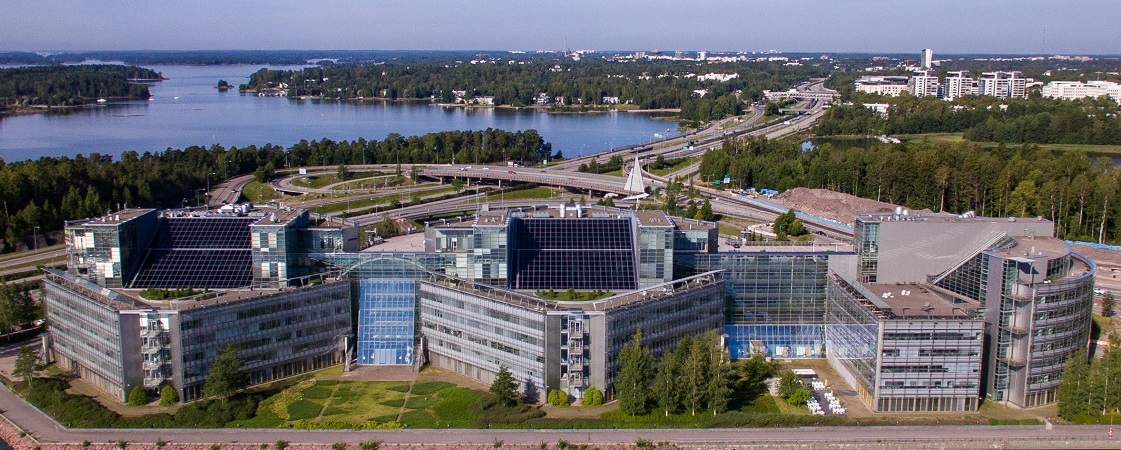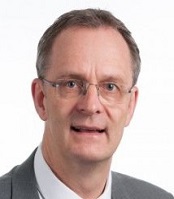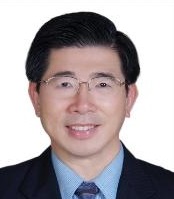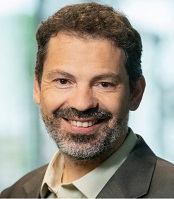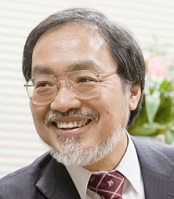INDIN 2019 Keynote Speakers
We are proud to announce the following keynotes by esteemed researchers at the conference.
Keynote by Dr. Alf Isaksson
Fully Autonomous Manufacturing – Only a dream or future reality? |
|---|
We hear almost daily about new advances in self-driving cars and artificial intelligence. For autonomous driving there are already established standards with levels from 0 to 5 describing the steps from completely manual operation to fully autonomous driving. Is it realistic to aim towards the fully autonomous manufacturing plant? What do we even mean by an autonomous plant?
This talk will make an effort in defining levels of autonomy for a manufacturing industry. The step towards autonomy will be illustrated by recent examples from industrial applications. One important observation is that while the automotive standards focus completely on operation of the car, it is for process and manufacturing industry equally important to take steps towards also autonomous engineering and autonomous maintenance.
About Dr. Alf Isaksson |
|---|
Alf Isaksson received an MSc in Computer Engineering and a PhD in Automatic Control, in 1983 and 1988 respectively, both from Linköping University, Sweden. After graduating he stayed at Linköping University until 1991 as an Assistant Professor. From 1991 to 1992 he spent one year as a Research Associate at The University of Newcastle, Australia. Returning to Sweden in 1992 Isaksson moved to the Royal Institute of Technology (KTH) in Stockholm, where eventually in 1999 he was promoted to full Professor. During this time he also spent 6 months in 1999 at the Pulp & Paper Centre of University of British Columbia, Vancouver, Canada as visiting professor.
In 2001 he made the shift from academic to industrial research and joined ABB Corporate Research in Västerås, Sweden. After a specialist career culminating in an appointment to Corporate Research Fellow in 2009, he is now since January 2014 Group Research Area Manager with the responsibility of internally coordinating all research in Control at all of ABB’s 7 research centers world-wide. At the same time Isaksson still kept a connection to the academic world as Adjunct Professor in Automatic Control at Linköping University 2006-2015, where he was leading a Process Industry Center from 2009 to 2012.
Keynote Presentation Slides |
|---|
Click here to download the presentation given at INDIN 2019.
Keynote by Prof. Ren C. Luo
AIoT and Robotics Driving Paradigm Shift of Intelligent Manufacturing New Biz:Some Exemplary Best Practices |
|---|
There are 10 widely recognized disruptive innovations and technologies in which Artificial Intelligence, Internet of Things, Robotics, Intelligent Manufacturing and Digital Economy are included. As the society facing the reality of aging and the industry encountered increased salary/wage levels as well as lack of skilled workers, the need of robots and manufacturing automation enhanced by Artificial Intelligence of Things (AIoT) is obvious. Amazon and Google are investing in AIoT and intelligent robotics technology. Others are likely to follow, further to stimulate investment and innovation.
Artificial Intelligence becomes important core technology of soft power in terms of global technological development, which has a wide spectrum of applications including robot integrated manufacturing automation, industrial cyber-physical systems (iCPS), internet of things, etc. The aforementioned issues, challenges and opportunities will be the focus of this presentation including some exemplary best practices and research results with video demo from NTU iCeiRA Lab.
About Prof. Ren C. Luo |
|---|
Prof. Ren C. Luo received Dipl.-Ing, and Dr.-Ing. Degree in Electrical Engineering from the Technische Universitaet Berlin, Germany. He is currently an Irving T. Ho Chair and Life Distinguished Professor and Director of International Center of Excellence on Intelligent Robotics and Automation Research at National Taiwan University; Editor-in Chief of IEEE Transactions on Industrial Informatics. Prof. Luo also served two terms as President of National Chung Cheng University in Taiwan and Founding President of Robotics Society of Taiwan. He served as a tenured Full Professor of Department of Electrical and Computer Engineering at North Carolina State University, Raleigh, NC, USA and Toshiba Chair Professor in the University of Tokyo, Japan.
His research interests include robotic control systems, multi-sensor fusion and integration for intelligent systems, mechatronics, computer vision, 3D printing additive manufacturing technologies. He has authored more than 500 papers on these topics in refereed international transactions/ journals and refereed conference proceedings. He also holds more than 25 international patents. Prof. Luo received IEEE Eugean Mittlemann Outstanding Research Achievement Award, IEEE IROS Harashima Innovative Technologies Award; ALCOA Company Foundation Outstanding Engineering Research Award, USA. He served 5 years as Editor-in-Chief of IEEE/ASME Transactions on Mechatronics. Prof. Luo served as President of IEEE Industrial Electronics Society. He also served as President of Chinese Institute of Automation Engineers, Program Director of Automation Technology Division, Ministry of Science and Technology; Prof. Luo served as Science and Technology Adviser to the Prime Minister in Taiwan. Prof. Luo also served as referee and final review panel member for the evaluation and assessment of national competitive grants program in major cross-disciplinary research project for numerous international organizations and countries, such as USA, Japan, Canada, Australia, European Union, Austria, Singapore, etc. Dr. Luo is a Fellow of IEEE and a Fellow of IET.
Keynote by Stavros Tripakis
The Science of Software and System Design |
|---|
Science is knowledge that allows us to make predictions. What is the science of system design? What predictions can we make about the systems we build and deploy? As these systems increasingly rely on software, what predictions can we make about that software? Using examples from our own research, we advocate a formal approach to tackling these questions. In particular, we present some of our recent work on: (1) the Refinement Calculus of Reactive Systems, a compositional modeling and formal reasoning framework for cyber-physical systems; (2) synthesis from scenarios and requirements, a powerful combination of learning from examples and formal synthesis from specifications; and (3) synthesis of platform mappings with applications to security.
About Stavros Tripakis |
|---|
Stavros Tripakis is an Associate Professor at Northeastern University. He received his Ph.D. degree in Computer Science at the Verimag Laboratory, Joseph Fourier University, Grenoble, France, and has held positions at the University of California at Berkeley, at the French National Research Center CNRS, at Cadence Design Systems, and at Aalto University. His research interests are in the foundations of software and system design, computer-aided verification, and cyber-physical systems. Dr. Tripakis was co-Chair of the 10th ACM & IEEE Conference on Embedded Software (EMSOFT 2010), and Secretary/Treasurer (2009-2011) and Vice-Chair (2011-2013) of ACM SIGBED. His H-index is 47.
Keynote Presentation Slides |
|---|
Click here to download the presentation given at INDIN 2019.
Keynote by Toshio Fukuda
Mutli-Scale Robotics - From brachiation robot to micro/nano robotic manipulation |
|---|
This keynote is an overview of the Multi-scale robotics, based on the Cellular Robotics System, which is the basic concept of the emergence of intelligence in the multi-scale way from Cell Level to the Organizational Level, proposed more than 30 years ago. It consists of many elements how the system can be structured from the individual to the group/society levels in analogy with the biological system. It covers with the wide range of challenging topics:
- Individual robot level, Brachiation Robots and Multi-locomotion robots
- Medical robotics and simulator
- Cooperation and competition of the multiple robotics system
- Distributed autonomous robotic system
- Micro and nano robotics system
- Bio analysis and bio-synthesis: bio-robotics system
- Cyborg and Bionic System
- Other systems
About Toshio Fukuda |
|---|
Toshio Fukuda graduated from Waseda University, Tokyo, Japan in 1971 and received the Master of Engineering degree and the Doctor of Engineering degree both from the University of Tokyo, in 1973 and 1977, respectively. He studied at Graduate School of Yale University in 1973-1975. He joined the National Mechanical Engineering Laboratory in Japan in 1977, the Science University of Tokyo in 1982, and then joined Department of Mechanical Engineering, Nagoya University, Japan in 1989. He worked at University of Stuttgart, as Humboldt Fellow in 1979-1981. He was one thousand talented foreign Professor at BIT (2013-2018). He is Professor Emeritus of Nagoya University. Department of Micro and Nano-Systems Engineering and Professor of Meijo University. He has been working as Professor of Shenyang University of Technology, Suzhou University, Institute of Automation, Chinese Academy of Science, Russell Springer Chaired Professor at UC Berkeley, Seoul National University, Advisory Professor of Industrial Technological Research Institute in Taiwan and etc. He is a Foreign member of Chinese Academy of Sciences (2017).
He is mainly engaging in the research fields of intelligent robotic system, micro and nano robotics, bio-robotic system, and technical diagnosis and error recovery system.
He was the President of IEEE Robotics and Automation Society (1998-1999), Director of the IEEE Division X, Systems and Control (2001-2002), the Founding President of IEEE Nanotechnology Council (2002-2005), Region 10 Director (2013- 2014), Director of Division X, Systems and Control (2017-2018) and IEEE President- elect (2019). He was Editor-in-Chief of IEEE/ASME Trans. Mechatronics (2000- 2002).
He was the Founding General Chair of IEEE International Conference on Intelligent Robots and Systems (IROS) held in Tokyo (1988). He was Founding Chair of the IEEE Conference on Nanotechnology(2001), IEEE Workshop on Robot and Human Communication (1994), IEEE Workshop on Advanced Robotics Technology and Social Impacts (ARSO, 2005), Founding Chair of the IEEE Workshop on System Integration International (SII, 2008), Founding Chair of the International Symposium on Micro- Nano Mechatronics and Human Science (MHS, 1990-2012), IEEE Conference on Cyborg and Bionic Systems(2017), IEEE Conference on Intelligence and Safety of Robots (2018).
He has received many awards such as IEEE Eugene Mittelmann Achievement Award (1997), IEEE Third Millennium Medal (2000) , Humboldt Research Prize (2003), IEEE Robotics and Automation Pioneer Award (2004), IEEE Transaction Automation Science and Engineering Googol Best New Application Paper Award (2007), George Saridis Leadership Award in Robotics and Automation (2009), IEEE Robotics and Automation Technical Field Award (2010). He received the IROS Harashima Award for Innovative Technologies (2011), Friendship Award of Liaoning Province PR China (2012), Friendship Award from Chinese Government (2014), JSME Achievement Award (2015), IROS Distinguished Service Award (2015) and Honor of Medal with the Purple Ribbon from Japanese Government ( 2015). Award from Automation Foundation (2016).
IEEE Fellow (1995). SICE Fellow (1995). JSME Fellow (2002), RSJ Fellow (2004), VRSJ Fellow (2011) and member of Science Council of Japan (2008-2014 ), and Academy of Engineering of Japan (2013-).


